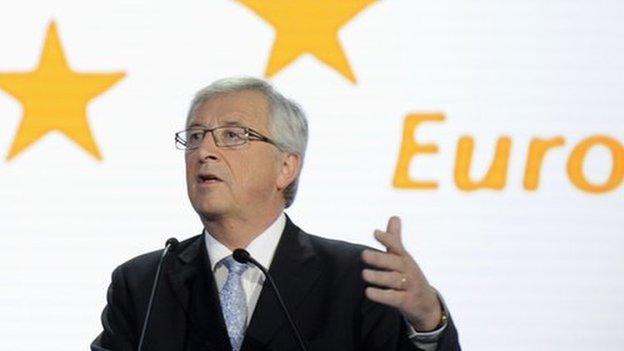Juncker's EU army idea - a useful distraction?
- Published
- comments
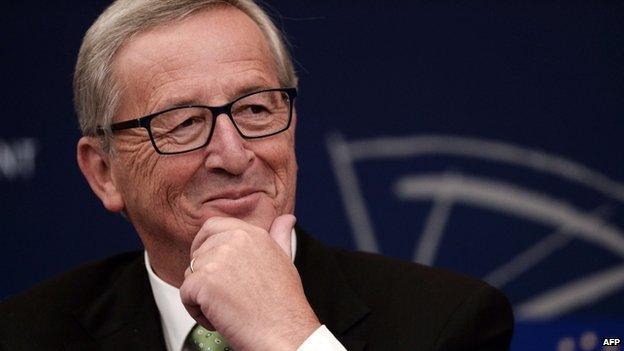
Jean-Claude Juncker's European Commission has not helped smooth choppy waters in the EU
European Commission President Jean-Claude Juncker has caused quite a stir by recycling the idea of forming an EU army.
But rather than focusing my mind on external threats, his comments got me thinking about all the internal battles the EU is facing.
The notion behind a common foreign policy, never mind a joint military, is for the EU to speak with one forceful voice on the world stage.
But the 28-member bloc is currently a cacophony of fractious squabbling: over how to deal with Russia, how to battle illegal immigration, how to face off the prospect of deflation and of course, how to handle Greece... to cite just a few of the divisions.
Greek farce
Greece and its woes were at the top of the agenda at a meeting of eurozone finance ministers in Brussels on Monday.
Greece's outspoken finance minister, Yanis Varoufakis, has just darkened storm clouds even further by threatening to hold a referendum if the Greek government's reform programme is now rejected.
Defence Minister Panos Kammenos went so far as to rage that Greece would then "flood" Europe with refugees, including potential Islamic State members.
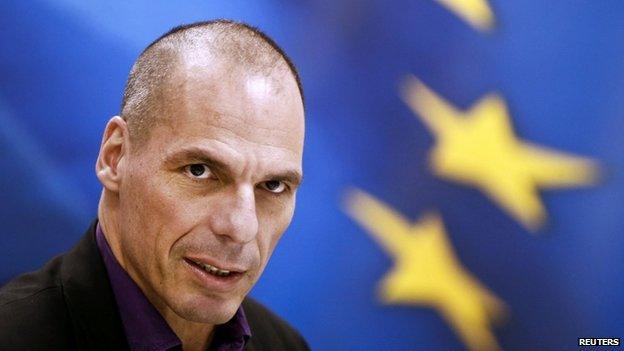
Greek Finance Minister Yanis Varoufakis has threatened to hold a referendum if Greece's terms are not met
President Juncker's Commission hasn't helped smooth the choppy EU waters much either.
While tiny Greece believes it's being sacrificed on the altar of the German austerity model, the EU Commission recently let influential EU members France and Italy off the hook again for not sticking to budget deficit rules.
Their finances cannot be compared directly to Greece, but the incident served to heighten tensions, a feeling of injustice and suspicions of divergent visions inside the EU.
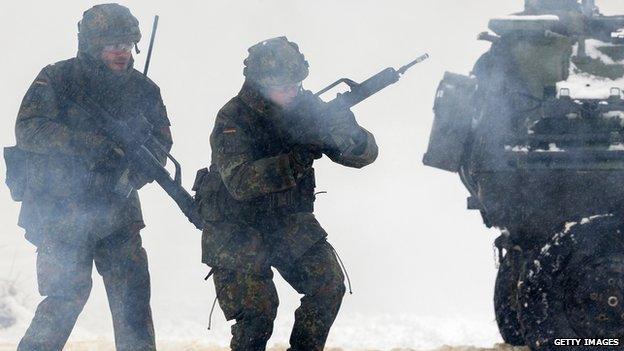
French and German soldiers have trained together as a joint 2,100-strong brigade
The army card
Forming an EU army is not a new proposal. And every time it resurfaces, it is quashed almost immediately.
Note the swift rejection by the British government.
Perhaps, in making headlines with EU army talk, Mr Juncker is following in the time-honoured tradition favoured by world leaders of trying to divert attention abroad when all is not well at home.
It's an extremely useful tool.
President Francois Hollande, for example, has suffered the worst popularity ratings on record of any French leader.
He is well known for making big gestures on the world stage, such as recently standing alongside Germany to work out the Minsk ceasefire agreement on Ukraine with Russia.
However, speaking with one voice will never come easy to 28 very different nation states.
- Published9 March 2015
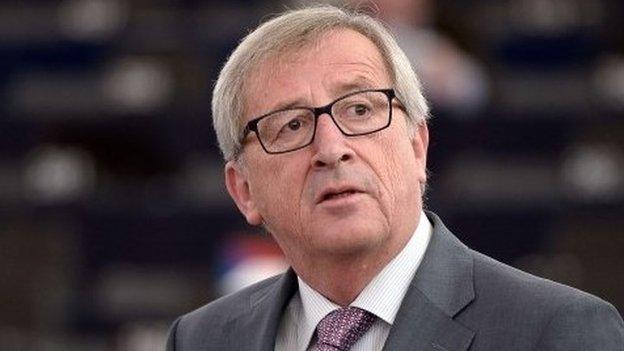
- Published15 July 2014
- Published15 July 2014
